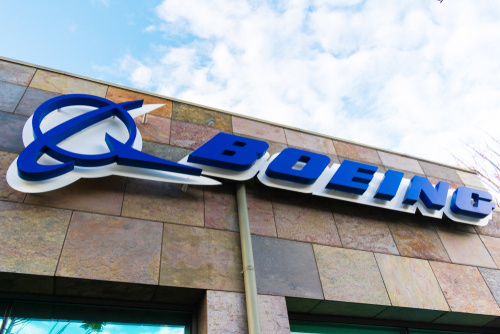
The Federal Aviation Administration announced Friday it will begin auditing the Boeing 737-9 MAX production line following calls for oversight after an inflight incident.
U.S. Sen. Maria Cantwell (D-Wash.), Chair of the Senate Commerce, Science and Transportation Committee, said the FAA’s decision was a welcome one. Cantwell had called on the agency to detail its oversight of Boeing last week.
“Yesterday I called for FAA to strengthen its oversight of manufacturers, and today I welcome FAA’s decision to open a new audit of Boeing’s production line to determine if the company’s quality control processes meet compliance standards,” Cantwell said in a statement on Friday. “The public deserves a comprehensive evaluation of Boeing and Spirit AeroSystems to strengthen production quality and aviation safety.”
In a letter to FAA Administrator Michael Whitaker on Thursday, Cantwell asked for information and safety audit documents related to the company’s 737-9 MAX to ensure the company was not avoiding accountability and was complying with FAA quality control regulations
Cantwell said in the letter than she had requested a special technical audit of Boeing’s production systems in January 2023. In April of last year, FAA Acting Administrator Billy Nolen said the agency had already implemented tools to complete audits of Boeing at regular intervals.
“The safety of the flying public is our top priority,” Cantwell said. “We must know what caused the terrifying incident on an Alaska Airlines flight last week and whether manufacturers and FAA oversight failed to meet safety regulations. The American public deserves answers. I am asking the FAA to provide a full accounting of its oversight of manufacturers’ compliance with quality control standards.”
The audit comes after a recent incident where Alaska Airlines Flight 1282 lost a passenger door plug in mid-flight. That incident, and others over the years, calls into question Boeing’s compliance with FAA quality control regulations, as well as the FAA’s oversight abilities, Cantwell said.
Since the incident, the FAA has grounded approximately 171 Boeing 737-9 MAX planes. On Friday, it said it would increase its oversight of Boeing production and manufacturing by auditing the plane’s production line and its suppliers; increasing its monitoring of Boeing 737-9 MAX in-service events, and assessing the safety risks around delegated authority and quality oversight, as well as looking into the agency’s options to “move these functions under independent, third-party entities.”
“It is time to re-examine the delegation of authority and assess any associated safety risks,” Whitaker said. “The grounding of the 737-9 and the multiple production-related issues identified in recent years require us to look at every option to reduce risk. The FAA is exploring the use of an independent third party to oversee Boeing’s inspections and its quality system.”